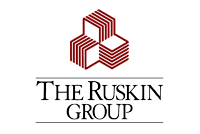
I’ll start with the obvious. Of course, everyone in manufacturing wants to and should pursue efficiency gains in production. High standards drive high results. It’s true in everything we do in work, relationships, hobbies, etc. When the bar is set high, inherently, you try and reach that level. I fully understand that is the case and should be the case. What isn’t necessarily true is the consistent message we’ve all heard for years, “Efficiencies save the company big dollars.” Well… hypothetically maybe. Possibly. It could.
I’ll explain with an “also, obviously….” Efficiency gains increase capacity. But are there actually dollars tied to an efficiency gain? Efficiency improvements by themselves don’t actually save the company any money. They could, but not directly. Some other factor must change in order to realize a financial benefit. Think about it. The machines run the same number of impressions, so maintenance costs are unlikely to change materially. Perhaps, the amount of total run time matters, but it could be years before those would be realized and proving that definitively would be impossible. Selling, General and Administrative expenses don’t change. Fixed overheads don’t change. Raw material costs don’t change. Shipping costs? Nope. Nothing there either.
What about labor? The company would easily reduce labor costs! Well, again, maybe. What will absolutely happen is direct labor costs would turn to indirect labor costs. You could send the direct labor home, which would reduce the company’s cost. It’s been my experience that this rarely happens. Normally, that direct labor cleans, or does another non-direct labor task. But all the naysayers are correct. There COULD be direct labor savings because of an efficiency gain. However, even this requires a secondary act – management sending the direct labor home, thus reducing the number of hours worked.
What’s the point? Well, primarily, it bugs me when people say there is massive opportunity to cut costs by increasing efficiency. Under normal circumstances, it’s just not true. The only way it is completely true, is if your facility is at 100 percent capacity (24/7/365) and are turning down orders. Even then, the amount of the efficiency gain would have to be substantial to have an immediate impact. A 1 percent increase in efficiency won’t move the needle. In reality, most manufacturing facilities are not at true capacity and any time saved through an efficiency gain is unlikely to have new orders to fill that down time. In other words, there isn’t much there.
Secondarily, the point is to say we oftentimes focus more attention than necessary on tasks that don’t drive the top or bottom lines. Quick break for a side note – see paragraph 1. I’m not saying efficiency gains are not important, it just doesn’t drive profitability like some believe. Now, back your regularly scheduled programming. There are absolutely manufacturing best practices that reduce costs, it’s just not really efficiency improvements. Here are a few better examples – waste, a product saved is a dollar sold. Preventative maintenance program – lowers overall maintenance costs on the equipment. Automation – Think automatic conveyors, it DIRECTLY pulls labor costs out of manufacturing by reducing forklift labor + it shows up to work every day! Material and part pricing – a dollar saved is a dollar that falls all the way to the bottom line.
Anytime I make a decision, consider additional personnel, support a change in philosophy, or get behind a new initiative I ask myself a simple question (safety projects excluded). Does this directly lower the cost of doing business or help increase sales? If the answer to that question is no, I don’t eliminate it from consideration, but there needs to be a good secondary reason for making that decision and it will likely not be prioritized. An example – you may want to hire additional HR to support hiring. A net addition to HR doesn’t reduce costs and I’ve not known HR to ever sell anything. The answer to my simple question, “does this lower cost or increase sales” is no, but there could be a perfectly good reason to make that hire, like Sales Recruitment.
I’ll steer the ship back toward the main topic and wrap it up. If this takes longer than five minutes to read, no one will read it (I wouldn’t blame you). Anyways, efficiency savings! They are important, but secondarily important. Important in the sense that you want to have high standards and may realize small savings, but for most of us, it isn’t a homerun, buy-a-new-boat type of savings. It is there and it is fine, but I would go after many other things before efficiency gains.
Sell product and reduce raw material cost. Priorities one and two forever and always when talking profit.
Trent Halasek is a Sales Manager at Akers Packaging Service Group.
https://boardconvertingnews.com/efficiency-improvements-are-importantbut-cost-savings-are-hypothetical/
Comments are closed.

